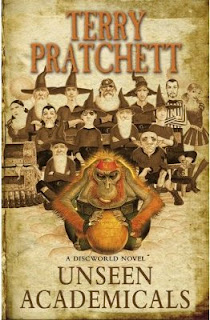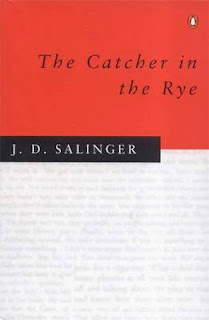Books of the decade
If the Guardian, the Times, and the Telegraph can get away with filling space with a book list, then surely I can too. Presenting:
10 pretty good books of the decade
They may or may not be the best books of the decade, but they're definitely the ones (a) I found most entertaining and (b) hadn't slipped my mind while compiling the list. In chronological order,
It's slightly perturbing to see that almost all of my selections come from the first half of the decade. Maybe it's because I spent most of the second half in Germany, and all the good books passed me by. Or maybe 2003 was genuinely a high water mark. Anyway, if you're desperate for some late noughties literature, two that just missed the cut are The Reluctant Fundamentalist by Mohsin Hamid (2007) and A Fraction of the Whole.
And 5 disappointments...
I'm sure these aren't the worst books published this decade, but for various reasons they didn't live up to my expectations.
That's all from me. What are your picks of the decade?
10 pretty good books of the decade
They may or may not be the best books of the decade, but they're definitely the ones (a) I found most entertaining and (b) hadn't slipped my mind while compiling the list. In chronological order,
- A Heartbreaking Work of Staggering Genius by Dave Eggers (2000)
- The Corrections by Jonathan Franzen (2001)
- The Amazing Maurice and his Educated Rodents by Terry Pratchett (2001)
- Schott's Original Miscellany by Ben Schott (2002)
- Vernon God Little by DBC Pierre (2003)
- The Curious Incident of the Dog in the Night Time by Mark Haddon (2003)
- A Nice Cup of Tea and a Sit Down by Nicey and Wifey (2004)
- The Ancestor's Tale by Richard Dawkins (2004)
- Watching the English: the Hidden Rules of English Behaviour by Kate Fox (2004)
- The Harry Potter series by JK Rowling (1997-2007)
It's slightly perturbing to see that almost all of my selections come from the first half of the decade. Maybe it's because I spent most of the second half in Germany, and all the good books passed me by. Or maybe 2003 was genuinely a high water mark. Anyway, if you're desperate for some late noughties literature, two that just missed the cut are The Reluctant Fundamentalist by Mohsin Hamid (2007) and A Fraction of the Whole.
And 5 disappointments...
I'm sure these aren't the worst books published this decade, but for various reasons they didn't live up to my expectations.
- Life of Pi by Yann Martel (2001)
- The Da Vinci Code by Dan Brown (2003)
- The Timewaster Letters by Robin Cooper (2004)
- Saturday by Ian McEwan (2005)
- Freakonomics by Steven Levitt and Stephen J. Dubner (2005)
That's all from me. What are your picks of the decade?



An interesting list of likes and dislikes. I have to agree that Amazing Maurice was one of the best Pratchetts of the last decade. A gloriously dark and imaginative tale to stimulate young minds, brilliant; Nation does a similar job. I bought A Nice Cup of Tea and a Sit Down for my dad one Christmas as a bit of a joke present; I enjoyed flicking through it, but I have to say I haven't gone cover to cover as yet. Maybe one of these days.
ReplyDeleteStill not yet finished the Potter books, but that's because I tend to read the book weeks or days before I see the latest film. Not long to go...
I agree thoroughly about Saturday, also my only McEwan book; high-concept and very well written but distinctly contrived and far to much daily minutiae included. And yes, the ending is deeply absurd.
I have not bothered even touching the Da Vinci Code. In fact I just read The Anubis Gates by Tim Powers, which feels like the sort of book Brown should aspire to write.
Life of Pi on the other hand, I thoroughly enjoyed. The ending has in my experience proved somewhat divisive though. I think it's unfair to say that it is sermonising on the necessity of a fairy tale worldview across the board; but in certain circumstances it is certainly understandable, such the psychologically damaging straits in which young Pi apparently found himself. I'm not sure that I can see it as a call to arms against rationality. To be fair, it has been a good few years since I read it though, maybe a re-read is in order at some point.
Thanks for the Tim Powers tip. I've encountered his name once before as apparently one of his books is the inspiration behind the Monkey Island computer game series. Will definitely give him a try sometime.
ReplyDeleteMaybe I read too much into the ending of Life of Pi. But by that stage I was already fed up with the ever-increasing hokiness of the story, so I was in a mood to find faults.